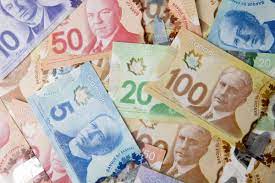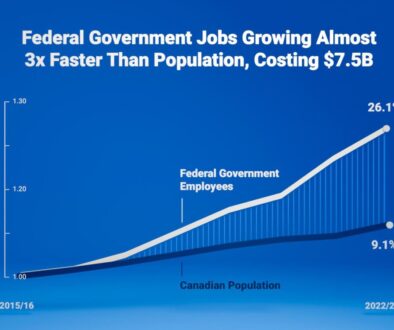STANDING COMMITTEE ON BANKING AND COMMERCE — MINUTES OF PROCEEDINGS AND EVIDENCE RESPECTING THE BANK OF CANADA, No. 1.
The importance of Mr. Tower’s testimony is significant. He affirms that the Bank of Canada could (and possibly should) be the creator of credit or money as a form of a public utility that benefits all Canadians and avoids unnecessary interest costs of bank-created debts (bank debt money now represents over 95% of Canada’s total money supply). The burden of hidden interest charges on government, household, and business debts now represents over 70% of the median after-tax income of the average Canadian household.
Towers in 1939 was speaking a truth about the nature of money and the role a properly empowered Bank of Canada could play in alleviating the burden of debt costs. That would be a refreshing and welcome debate during a time of both health and economic pandemics. With total outstanding debts in Canada which exceed $8.6 trillion, is it time for a debt Jubilee and a Clean Slate law as the ancient Sumerians practiced?
www. library.biblicalarchaeology.org/article/proclaim-liberty-throughout-the-land/

OTTAWA, J. O. PATENAUDE, I.S.O. PRINTER TO THE KING’S MOST
EXCELLENT MAJESTY, 1939.
LIBRARY OF CANADA PARLIAMENT
WITNESSES:
Dr. W. C. Clark, Deputy Minister of Finance
Mr. Graham Ford Towers, Governor of the Bank of Canada
WEDNESDAY, MARCH 8, 1939 and THURSDAY, MARCH 16, 1939.
MEMBERS OF THE COMMITTEE: Mr. W. H. Moore, Chairman and Messieurs Baker, Bercovitch, Cahan, Clark (York-Sunbury), Cleaver, Coldwell, Deachman, Donnelly, Dubuc, Dunning, Euler, Fontaine, Fournier (Hull), Fraser, Harris, Hill, Howard, Hushion, Ilsley, Jaques, Kinley, Kirk, Lacroix (Beauce), Landeryou, Lawson, Leduc, Macdonald (Brantford City), Mackenzie (Vancouver Centre), McGeer, McLarty, McPhee, Mallette, Manion, Martin, Maybank, Mayhew, Perley, Plaxton, Quelch, Raymond, Ross (Middlesex East), Ross (St. Paid’s), Stevens, Thorson, Tucker, Vien, Ward, White, Woods worth—50.
- ARSENAULT, Clerk of the Committee.
McGeer: But there is no question about it that banks create the medium of exchange?
Mr. Towers: That is right. That is what they are for… That is the Banking business, just in the same way that a steel plant makes steel.
The manufacturing process consists of making a pen-and-ink or typewriter entry on a card in a book. That is all.
Each and every time a bank makes a loan (or purchases securities), new bank credit is created — new deposits — brand new money.
Broadly speaking, all new money comes out of a Bank in the form of loans. As loans are debts, then under the present system all money is debt.
McGeer: When $1,000,000 worth of bonds is presented (by the government) to the bank, a million dollars of new money or the equivalent is created?
Mr. Towers: Yes.
McGeer: Is it a fact that a million dollars of new money is created?
Mr. Towers: That is right.
McGeer: Now, the same thing holds true when the municipality or the province goes to the bank?
Mr. Towers: Or an individual borrower.
McGeer: Or when a private person goes to a bank?
Mr. Towers: Yes.
McGeer: When I borrow $100 from the bank as a private citizen, the bank makes a bookkeeping entry, and there is a $100 increase in the deposits of that bank, in the total deposits of that bank?
Mr. Towers: Yes.
McGeer: Mr. Towers, when you allow the merchant banking system to issue bank deposits which, with the practice of using the cheques as we have it in vogue today, constitutes the medium of exchange upon which I think 95 per cent of our public and private business is transacted, you virtually allow the banks to issue an effective substitute for money, do you not?
Mr. Towers: The bank deposits are actual money in that sense, yes.
McGeer: In that sense they are actual money, but, as a matter of fact, they are not actual money but credit, bookkeeping accounts, which are used as a substitute for money?
Mr. Towers: Yes.
McGeer: Then we authorize the banks to issue a substitute for money?
Mr. Towers: Yes, I think that is a very fair statement of banking.
McGeer: 12 per cent of the money in use in Canada is issued by the Government through the Mint and the Bank of Canada, and 88 per cent is issued by the merchant banks of Canada on the reserves issued by the Bank of Canada?
Mr. Towers: Yes.
McGeer: But if the issue of currency and money is a high prerogative of government, then that high prerogative has been transferred to the extent of 88 per cent from the Government to the merchant banking system?
Mr. Towers: Yes.
McGeer: Will you tell me why a government with power to create money, should give that power away to a private monopoly, and then borrow that which parliament can create itself, back at interest, to the point of national bankruptcy?
Mr. Towers: If parliament wants to change the form of operating the banking system, then certainly that is within the power of parliament.
McGeer: So far as war is concerned, to defend the integrity of the nation, there will be no difficulty in raising the means of financing, whatever those requirements may be?
Mr. Towers: The limit of the possibilities depends on men and materials.
McGeer: And where you have an abundance of men and materials, you have no difficulty, under our present banking system, in putting forth the medium of exchange that is necessary to put the men and materials to work in defence of the realm?
Mr. Towers: That is right.
McGeer: Would you admit that anything physically possible and desirable can be made financially possible?
Mr. Towers: Certainly. [Underlining, emboldening & italics added by Claimants];
MA, DB



